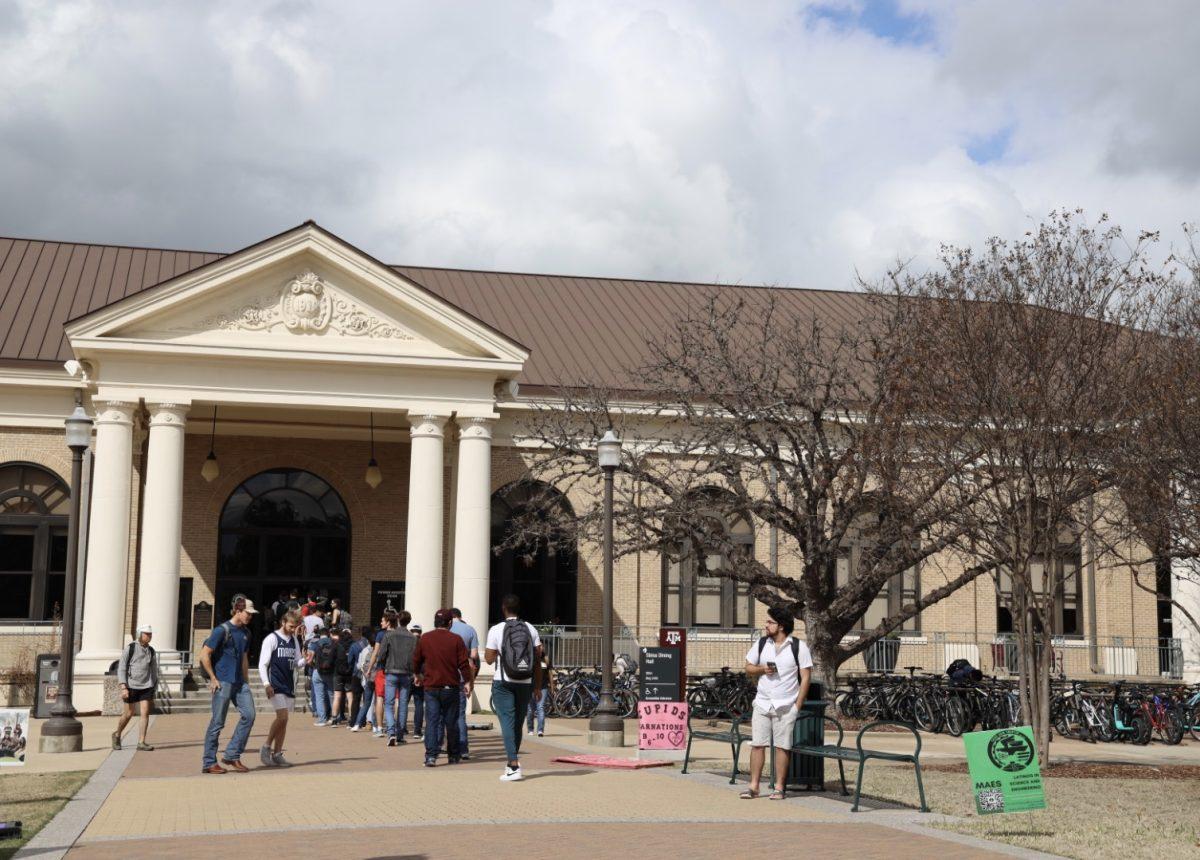Beginning in August, the days of Aggies frantically searching for ways to spend unused dining dollars at the end of the semester could be over.
In January, the U.S. Department of Education proposed a regulation requiring most colleges or universities to refund students remaining dining dollar balances. Texas A&M administration said in a statement A&M plans to amend its current policy beginning in the 2024-25 academic year to roll over student balances for the duration of the time they are enrolled.
The change follows a March 15 briefing statement released by the Biden-Harris administration announcing steps to tighten regulations on “hidden junk fees” as part of an agenda to lower costs for students and families paying for college.
The White House release defined junk fees as hidden or surprise fees that companies and institutions include on customer or student bills to increase costs. Under current A&M policy, students and parents must roughly estimate how many dining dollars will be needed. Dollars currently roll from fall to spring, with any remaining funds kept by dining services.
Communication sophomore Bekah Wilks said her parents bought $600 in dining dollars so Wilks could eat on campus and focus on schoolwork. By April, Wilks said she realized her balance was still “incredibly high.”
“Then, I started just pulling people and wanting to eat with them, and making sure I paid for them because I wasn’t going to be able to get that money back,” Wilks said.
Many meals later, Wilks said she still struggled to spend the rest of her dining dollars, upset that she wouldn’t get the money back.
The changes announced on March 15 are part of the administration’s strategy to make higher education more accessible and affordable, according to a White House press release. The proposal would not affect the more traditional meal plans that offer students a certain number of meals. However, it does affect dining dollars students purchase to use at locations such as Aggie Dining’s participating campus locations.
The U.S. Department of Education is formally considering regulations that would require all higher education institutions to return any federal financial aid recipients’ meal plans back to students. Institutions that currently keep leftover funds are creating a financial penalty for students who either lose the money they’re entitled to. Otherwise, students are forced to spend remaining funds on items they otherwise might not feel they need, according to the release.
Following the fourth set of five class days in a fall or spring semester, students will receive no refund from meal plans, as per A&M’s Student Rule 19. In a statement from Aggie Dining, Chartwells explained the current policy allows dollar balances to roll over from the fall to spring semesters but doesn’t allow rollover into the next academic year. Aggies with remaining dining dollar balances lose any money in that account at the end of the spring semester.
In an email, an A&M representative said the current policy gave students plenty of opportunities to spend their dining dollars. However, A&M hopes to widen its options for students to increase affordability.
“We’re doing this whether this proposed legislation passes or not, given our commitment to affordability,” the A&M representative wrote. “We are actively working with Aggie Dining to provide a variety of options for our students. Many of these options are affordable. Beginning in the fall, we will provide even more options and value in those options. As mentioned earlier, dining dollars will begin rolling over for a student’s entire term at Texas A&M.”
The representative said profits generated by meal sales go to Chartwells for maintaining on-campus dining operations, and these funds are not held or retained by A&M. According to its website, Chartwells is a higher education dining company partnered with 300 U.S. colleges, according to the Chartwells website.
When asked via email what the current dining dollar policy means for a student who is unable to finish a semester due to accident, injury, or family circumstance, the email reply was: “There is a process for a student to get a refund after the deadline passes for medical reasons or other life events outside of their control. Otherwise, refunds follow the tuition and fee adjustment schedule.”
Student Senate Speaker and petroleum engineering senior Ava Blackburn said the best way for students to promote a change in any policy at A&M is by contacting a Student Government Association, or SGA, representative.
“We have the easier lines of communication with administration and so we can help voice those concerns and figure out what a plan of action could be,” Blackburn said.
Blackburn acknowledged while Aggies may present an issue to a senator, nothing is guaranteed to change.
“… Sometimes there’s a lot more behind the scenes with something than you initially expect,” Blackburn said.
According to its constitution, SGA exists to represent students’ interests and promote participation from students in the policy and decision-making process within the university.
For more information on how to contact a student senator, visit senate.tamu.edu.
Tori Hillis is a journalism sophomore and contributed this article from JOUR 203 Media Writing I to The Battalion.










